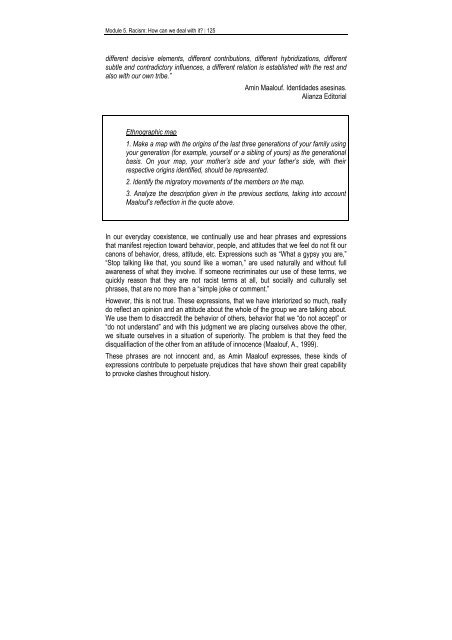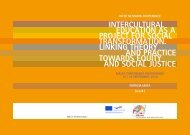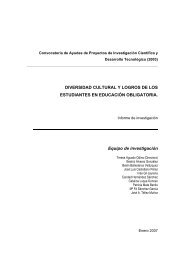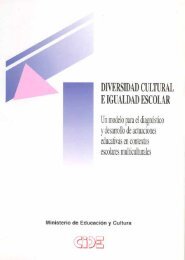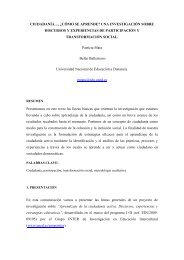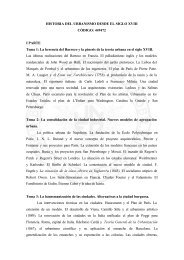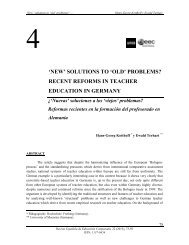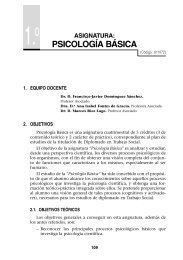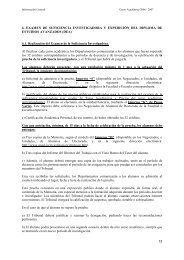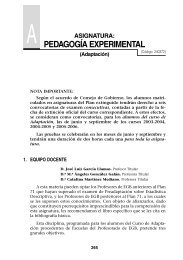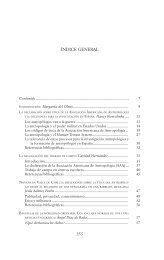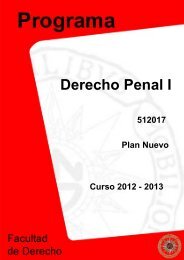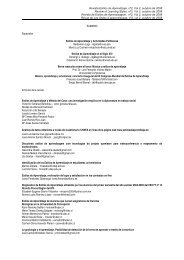Racism: What It Is and How to Deal with It - Uned
Racism: What It Is and How to Deal with It - Uned
Racism: What It Is and How to Deal with It - Uned
You also want an ePaper? Increase the reach of your titles
YUMPU automatically turns print PDFs into web optimized ePapers that Google loves.
Module 5. <strong>Racism</strong>: <strong>How</strong> can we deal <strong>with</strong> it? | 125<br />
different decisive elements, different contributions, different hybridizations, different<br />
subtle <strong>and</strong> contradic<strong>to</strong>ry influences, a different relation is established <strong>with</strong> the rest <strong>and</strong><br />
also <strong>with</strong> our own tribe.”<br />
Amin Maalouf. Identidades asesinas.<br />
Alianza Edi<strong>to</strong>rial<br />
Ethnographic map<br />
1. Make a map <strong>with</strong> the origins of the last three generations of your family using<br />
your generation (for example, yourself or a sibling of yours) as the generational<br />
basis. On your map, your mother’s side <strong>and</strong> your father’s side, <strong>with</strong> their<br />
respective origins identified, should be represented.<br />
2. Identify the migra<strong>to</strong>ry movements of the members on the map.<br />
3. Analyze the description given in the previous sections, taking in<strong>to</strong> account<br />
Maalouf’s reflection in the quote above.<br />
In our everyday coexistence, we continually use <strong>and</strong> hear phrases <strong>and</strong> expressions<br />
that manifest rejection <strong>to</strong>ward behavior, people, <strong>and</strong> attitudes that we feel do not fit our<br />
canons of behavior, dress, attitude, etc. Expressions such as “<strong>What</strong> a gypsy you are,”<br />
“S<strong>to</strong>p talking like that, you sound like a woman,” are used naturally <strong>and</strong> <strong>with</strong>out full<br />
awareness of what they involve. If someone recriminates our use of these terms, we<br />
quickly reason that they are not racist terms at all, but socially <strong>and</strong> culturally set<br />
phrases, that are no more than a “simple joke or comment.”<br />
<strong>How</strong>ever, this is not true. These expressions, that we have interiorized so much, really<br />
do reflect an opinion <strong>and</strong> an attitude about the whole of the group we are talking about.<br />
We use them <strong>to</strong> disaccredit the behavior of others, behavior that we “do not accept” or<br />
“do not underst<strong>and</strong>” <strong>and</strong> <strong>with</strong> this judgment we are placing ourselves above the other,<br />
we situate ourselves in a situation of superiority. The problem is that they feed the<br />
disqualifiaction of the other from an attitude of innocence (Maalouf, A., 1999).<br />
These phrases are not innocent <strong>and</strong>, as Amin Maalouf expresses, these kinds of<br />
expressions contribute <strong>to</strong> perpetuate prejudices that have shown their great capability<br />
<strong>to</strong> provoke clashes throughout his<strong>to</strong>ry.


